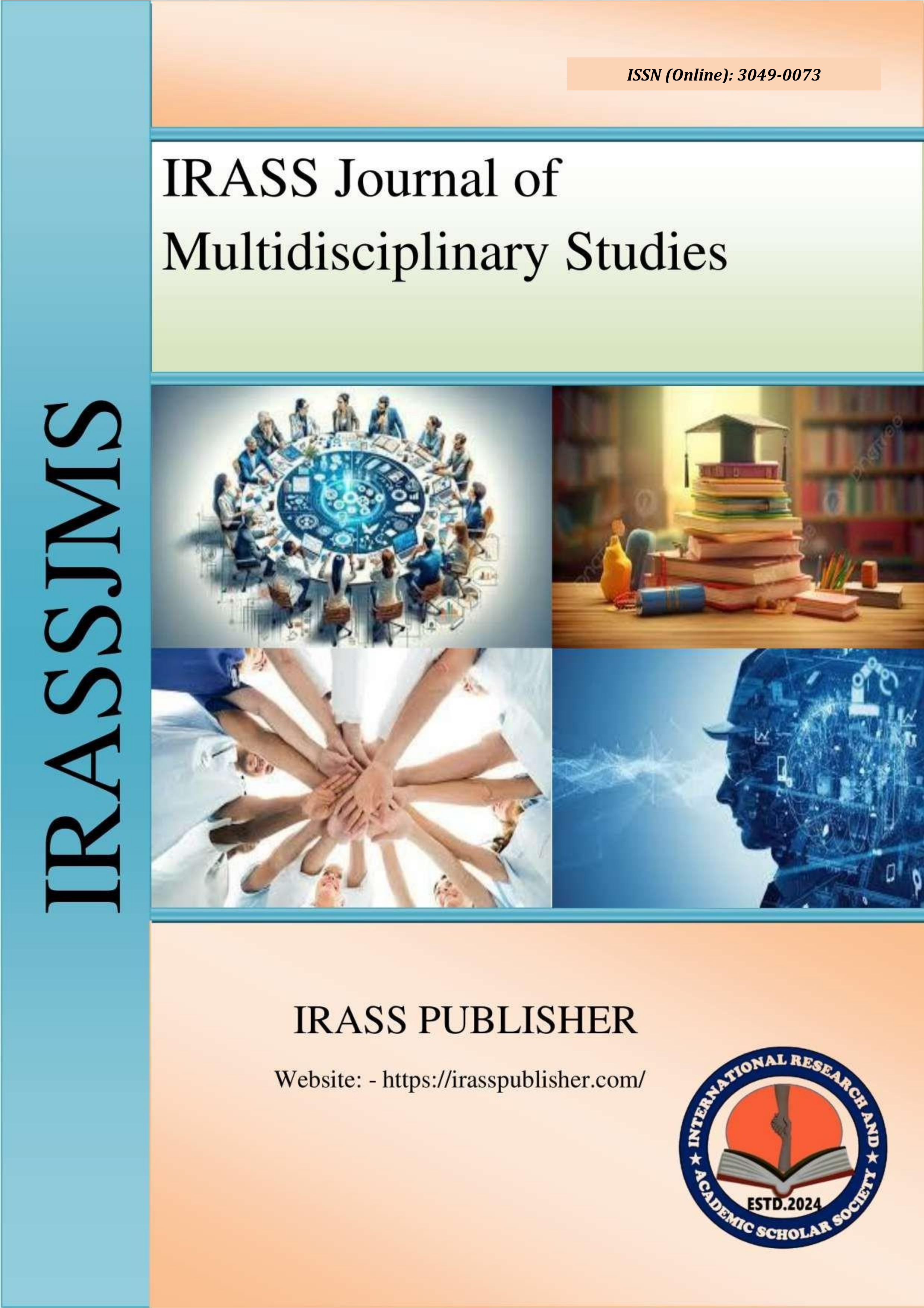THE HISTORY OF RURAL CRIMINOLOGY IN AFRICA AND THE EVOLVING NATURE OF RURAL CRIME OVER TIME
Sr No:
Page No:
18-37
Language:
English
Authors:
Dr. John Motsamai Modise*
Received:
2025-05-16
Accepted:
2025-05-30
Published Date:
2025-06-02
GoogleScholar:
Click here
Abstract:
The purpose of this article is to explore the evolving nature of rural crime in Africa,
with a focus on understanding its distinct characteristics, socio-economic drivers, and the
challenges faced by rural communities in addressing these issues. It aims to expand
criminological research to include rural crime, providing a comprehensive framework for both
theoretical development and practical crime prevention strategies. Rural crime in Africa remains
under-researched compared to urban crime, despite its significant impact on the safety and
livelihoods of rural communities. Factors such as poverty, land disputes, limited law
enforcement resources, and environmental degradation contribute to a range of criminal
activities, including livestock theft, illegal mining, human trafficking, and poaching. There is a
critical need to better understand these crimes to develop more targeted and effective responses.
The main topic of the article is the analysis of rural crime in Africa, examining its causes, forms,
and impact on local communities. It explores how rural crime differs from urban crime in terms
of socio-economic drivers, law enforcement challenges, and community responses. The article
highlights the intersection of rural crime with issues such as poverty, resource conflicts, and
gender disparities. Poverty, unemployment, and land disputes are the primary drivers of rural
crime in Africa. Addressing these underlying issues is essential for long-term crime prevention.
Strengthening community policing and integrating informal justice systems into formal legal
structures can enhance crime prevention in rural areas. Women, children, and marginalized
communities are disproportionately affected by rural crime, particularly in cases of trafficking
and domestic violence. Resource-based crimes, such as illegal mining and poaching, are rising in
rural areas, exacerbating the link between environmental degradation and criminal behavior. A
collaborative approach that integrates criminology with rural development, law enforcement,
environmental studies, and human rights is crucial for addressing the complex nature of rural
crime. The article adopts a mixed-methods approach, combining both qualitative and
quantitative research. It involves a review of existing literature on rural crime in Africa, case
studies of rural communities affected by various forms of crime, and interviews with law
enforcement officers, policymakers, and community leaders. This approach allows for a
comprehensive understanding of the socio-economic and cultural factors that shape rural crime,
as well as the effectiveness of current crime prevention strategies. The significance of this article
lies in its contribution to criminology by expanding the scope of crime research to rural areas in
Africa. It offers insights into how criminologists, policymakers, and law enforcement can better
address the specific challenges posed by rural crime. The article’s recommendations provide
practical solutions for improving crime prevention strategies and enhancing the safety of rural
communities. Moreover, it advocates for a more inclusive approach that considers the needs of
vulnerable populations, particularly women and children, in the design of crime prevention
policies. The article concludes that rural crime in Africa is a complex issue that requires targeted,
context-specific solutions. It calls for more research on rural crime to understand its evolving
nature and the socio-economic factors driving it. The need for interdisciplinary collaboration and
the integration of community-based approaches to crime prevention is emphasized. The article
advocates for policy reforms that address the unique needs of rural areas, ensuring that rural
crime is addressed in a way that promotes social justice, security, and sustainable development.
Keywords:
Rural Crime, Criminology, Africa, Community Policing, Informal Justice Systems, Socio-Economic Drivers, Land Disputes, Rendered Dimensions, Vulnerable Populations, Human Trafficking, Wildlife Poaching, Illegal Mining, Rural Development, Social Cohesion, Criminological Theory, Crime Prevention Strategies.
Journal: IRASS Journal of Multidisciplinary Studies
ISSN(Online): 3049-0073
Publisher: IRASS Publisher
Frequency:
Monthly
Language:
English

